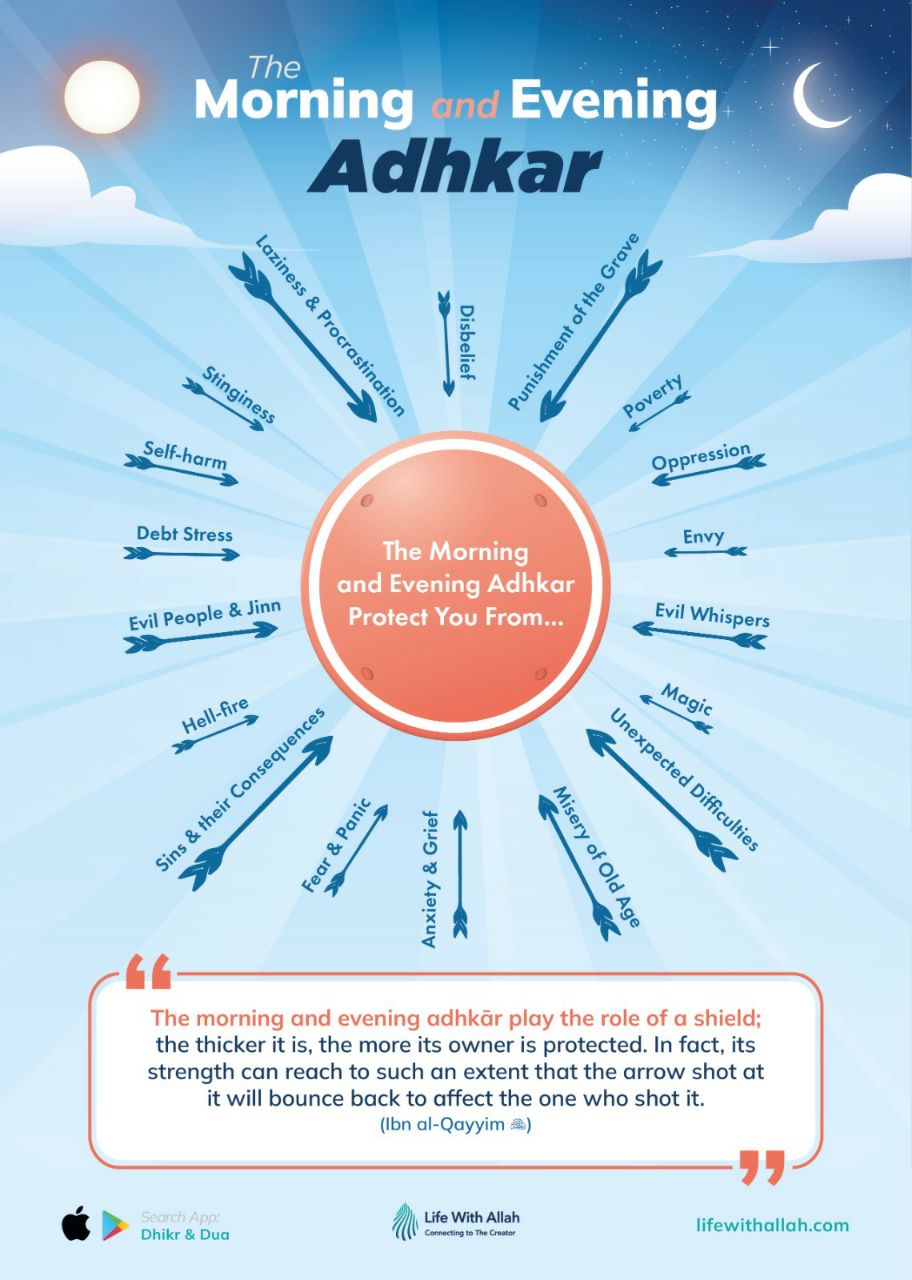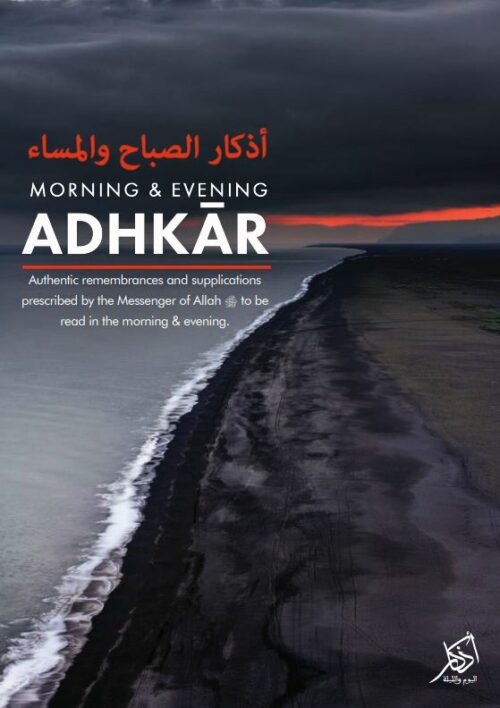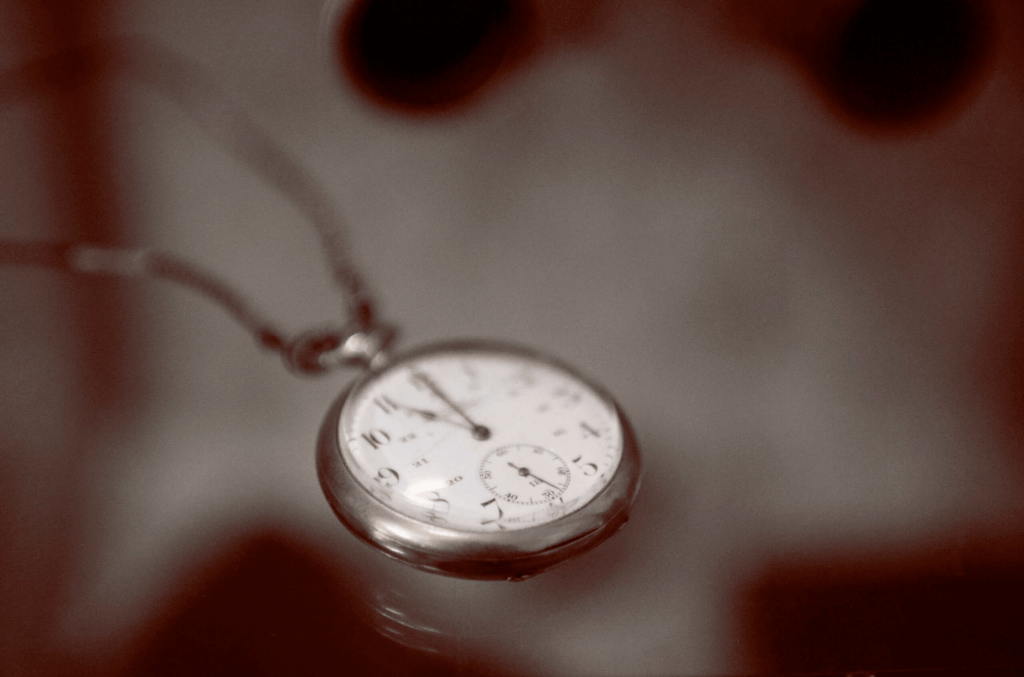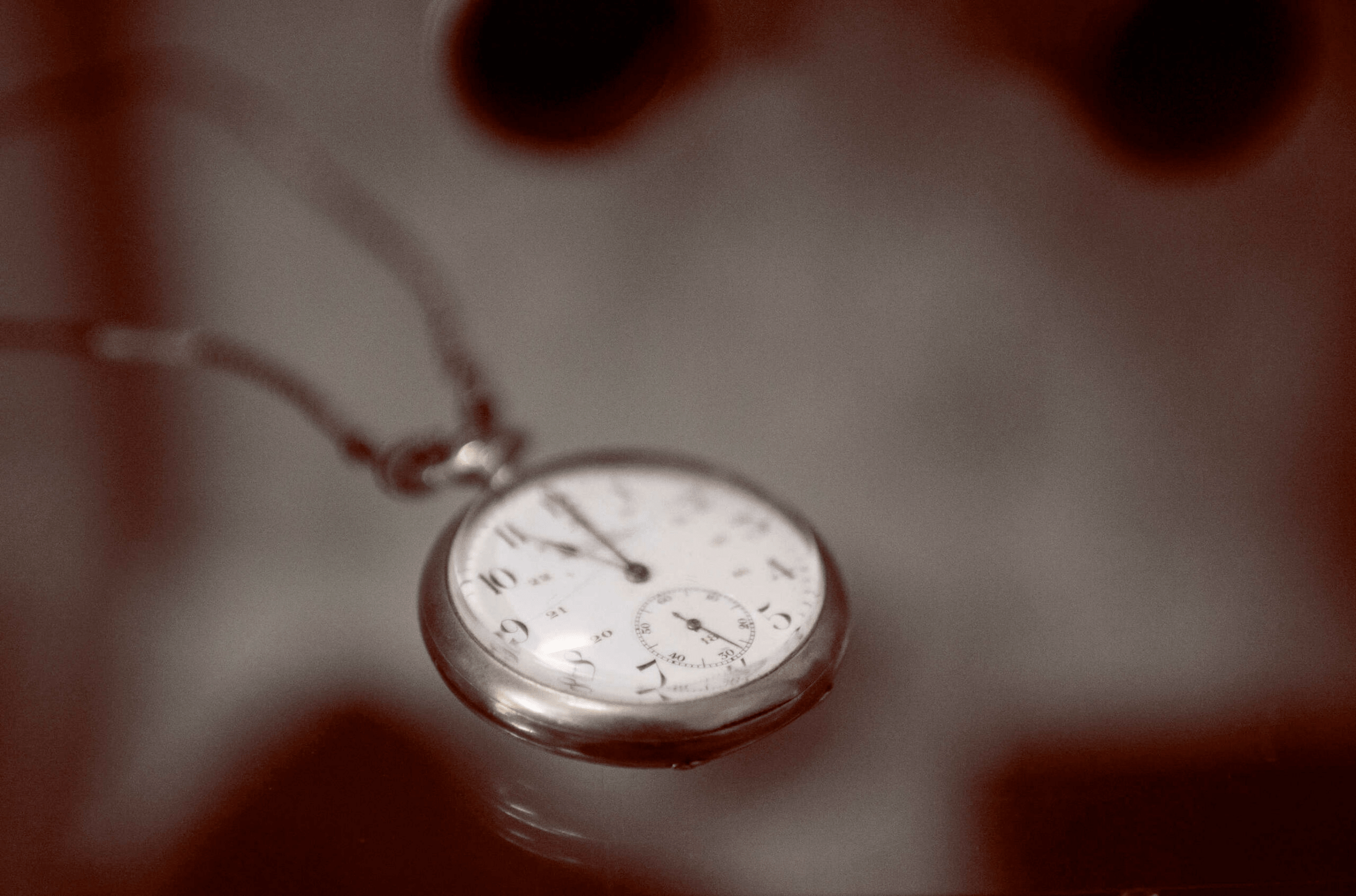Why do we remember Allah in the morning and evening specifically? What is the reward of reciting these remembrances (adhkār)? How will performing these adhkār change our lives? Here are 10 reasons:
1. Fulfil the command of Allah
Allah (subḥānahū wa taʿālā) instructed the Prophets and the believers to remember Him in the morning and the evening in over 15 āyāt of the Qur’ān. He also instructed the Messenger of Allah ﷺ to keep the company of those who remember Allah during these two times.
2. Join the Creation in Glorifying Allah
Allah (subḥānahū wa taʿālā) has made this an act of worship not just for humans, but for all of the creation, including the mountains and birds. Allah (subḥānahū wa taʿālā) says, “We made the mountains join him in tasbīh at sunset and sunrise; and the birds, too, in flocks. All were turning only unto Him.” (38:18-19)
The Messenger of Allah ﷺ said: “The sun does not rise except that all of Allah’s creation glorifies Allah with His praises, except for the devils and the foolish humans.” (Ibn al-Sunnī)
3. Appreciate Allah’s Greatness by Reflecting on the Universe
In these two particular periods we can observe the clear change that takes place in the universe as the night changes into day, and the day changes into night. Human hearts feel in touch with the universe around them, as they witness the manifestation of Allah’s power in the transition of day and night.
The heart is calm and reflective, and this is why these are the optimum times for dhikr as one can appreciate Allah’s greatness better.
4. Reaffirm Your Tawhid and Servitude to Allah
Through these adhkār, you affirm the oneness (tawḥīd), uniqueness and absolute perfection of Allah on a daily basis. Along with acknowledging your weakness and need of Him, you renew your pledge of servitude (ʿubūdiyyah) to Him by supplicating and praising Him. The adhkār will inspire you to love Allah, fear Him, have hope in Him, submit to Him and be grateful to Him.
5. Purify and Discipline Your Nafs
The inner self (nafs) is purified through ṣalāh, reciting the Qur’ān, doing dhikr and making duʿā. Thus, remembering Allah consistently during these times purifies the soul and trains the nafs. Especially in the initial stages of its journey to Allah, the nafs does not incline towards the remembrance of Allah for long durations. It would rather, for example, sleep after Fajr than spend time in dhikr. It would rather spend time in leisurely pursuits after ʿAṣr instead of doing dhikr.
By having a strict regimen of daily dhikr, you are developing mastery over your nafs and this will — by Allah’s permission — lead to your soul being purified and your heart becoming illuminated.
Allah (subḥānahū wa taʿālā) says, “So be patient — Allah’s promise is certainly true. Seek forgiveness for your shortcomings. And glorify the praises of your Lord morning and evening” (40:55).
Just as every journey requires one to take provisions, Allah reminds us that the provisions needed on this journey are istighfār and dhikr, especially in the morning and the evening. Doing istighfār and dhikr purifies and prepares the soul — this is the internal ‘victory’ that one needs before achieving the ‘external’ victory for the Ummah.
6. Attain Peace and Contentment
When the Messenger of Allah ﷺ faced persecution from the polytheists of Makkah, Allah (subḥānahū wa taʿālā) commanded Him to:
“…Endure with patience what they say; and glorify and praise your Lord before sunrise and before sunset.” (50:39)
The āyah above informs us that in difficult situations, we should arm ourselves with two things: sabr and remembering Allah in the morning and the evening. We have to turn to our Lord, glorifying Him before sunrise and sunset, early with the fresh breath of dawn as life awakens, and late as everything begins to cool down when the sun is about to set
Tasbīh is urged on the Messenger ﷺ and the believers at these two times, along with the night worship ‘so that you may attain a state of contentment’ (20:130).
When you glorify Allah, you have a direct link with Him, and one who maintains such a link is content and reassured. You are reassured because you know that, with Allah’s help, you are safe and secure. Thus, the outcome of tasbīḥ and worship is contentment.
7. Seek Allah’s Help and Attain Innumerable Blessings
Being consistent with the daily adhkār will help you to attain well-being (‘āfiyah) in your family, health, wealth, religion and in the hereafter.
By starting and ending your day with the remembrance of Allah, you will gain an immense amount of blessings (barakah) in your day.
8. Earn Unparalleled Rewards
The Messenger of Allah ﷺ gave glad tidings of unparalleled reward to those who recite the adhkār. The virtues of some of the adhkār include:
- All of your sins will be forgiven (Bukhārī).
- If you die on that day or night, you will enter Paradise
- You will be freed from Hell-fire (Abū Dāwūd).
- You will be pleased on the Day of Judgement (Tirmidhī).
- You will receive the intercession of the Prophet ﷺ, and he will hold your hand and enter you in to Paradise (Ṭabarānī).
Four acts bring sustenance: (1) Standing in the night prayer, (2) An abundance of istighfār before dawn, (3) A commitment to giving charity, and (4) Dhikr in the morning and evening. – Ibn al-Qayyim (raḥimahullāh)
9. Journey to Allah in These Two Times
The Messenger of Allah ﷺ said: “Journey to Allah in the morning, the evening and a part of the night…” (Bukhārī). The believer in this world is like a traveller. In this ḥadīth, he is being encouraged to utilise certain times and seize these golden opportunities to speed up in his journey to Allah. These three periods are times of journeying to Allah through performing acts of obedience.
It is hoped that one who preserves Fajr and ʿAṣr and remembers Allah thereafter will be amongst the elite of Paradise, for whom the morning and the evening will be reserved to see Allah.
10. Protect Yourself From All Evil
You will be protected from all forms of evil and harm, including illnesses, anxiety, grief, depression, devils, evil eye and magic. Ibn Kathīr (raḥimahullāh) writes, “Wear the ‘coat’ of adhkār so it can protect you from the evil of humans and jinn. And cover your souls with istighfār (seeking forgiveness) so it can erase the sins of the night and day.’”
‘The morning and evening adhkār play the role of a shield; the thicker it is, the more its owner is protected. Rather, its strength can reach to such an extent that the arrow shot at it will bounce back to affect the one who shot it.’ – Ibn al-Qayyim (raḥimahullāh)
Free Publications










